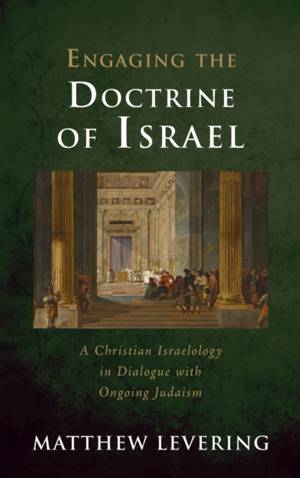
- Afhalen na 1 uur in een winkel met voorraad
- Gratis thuislevering in België vanaf € 30
- Ruim aanbod met 7 miljoen producten
- Afhalen na 1 uur in een winkel met voorraad
- Gratis thuislevering in België vanaf € 30
- Ruim aanbod met 7 miljoen producten
Zoeken
Engaging the Doctrine of Israel
A Christian Israelology in Dialogue with Ongoing Judaism
Matthew Levering
€ 98,95
+ 197 punten
Uitvoering
Omschrijving
This book is the dogmatic sequel to Levering's Engaging the Doctrine of Marriage, in which he argued that God's purpose in creating the cosmos is the eschatological marriage of God and his people.. God sets this marriage into motion through his covenantal election of a particular people, the people of Israel. Central to this people's relationship with the Creator God are their Scriptures, exodus, Torah, Temple, land, and Davidic kingship. As a Christian Israelology, this book devotes a chapter to each of these topics, investigating their theological significance both in light of ongoing Judaism and in light of Christian Scripture (Old and New Testaments) and Christian theology. The book makes a significant contribution to charting a path forward for Jewish-Christian dialogue from the perspective of post-Vatican II Catholicism.
Specificaties
Betrokkenen
- Auteur(s):
- Uitgeverij:
Inhoud
- Aantal bladzijden:
- 558
- Taal:
- Engels
- Reeks:
Eigenschappen
- Productcode (EAN):
- 9781725291096
- Verschijningsdatum:
- 16/09/2021
- Uitvoering:
- Hardcover
- Formaat:
- Genaaid
- Afmetingen:
- 152 mm x 229 mm
- Gewicht:
- 984 g

Alleen bij Standaard Boekhandel
+ 197 punten op je klantenkaart van Standaard Boekhandel
Beoordelingen
We publiceren alleen reviews die voldoen aan de voorwaarden voor reviews. Bekijk onze voorwaarden voor reviews.











